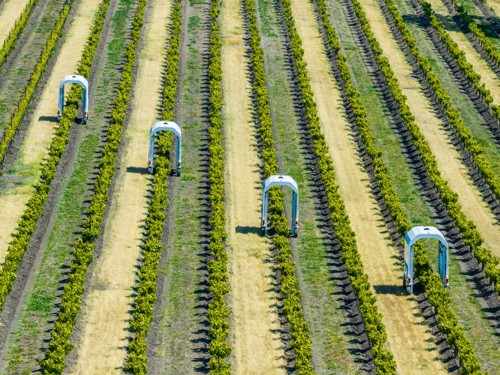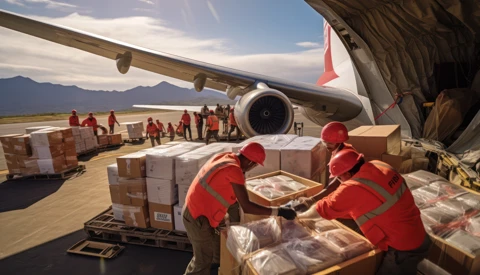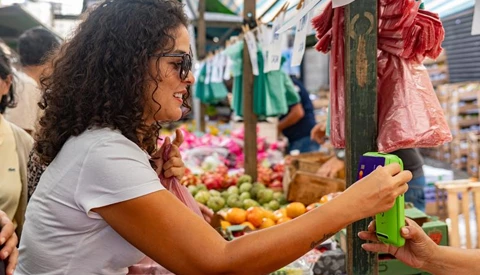First published in the Financial Times.
The world faces a monumental task: feeding a rapidly growing population while drastically reducing agriculture's environmental toll. The UN's Food and Agriculture Organization (FAO) projects a staggering 70% increase in food production needed by 2050 to feed an estimated 9.1 billion people.1 This must happen amidst shrinking natural resources and escalating climate pressures.
The Unpalatable Truth: Our Global Food System at a Crossroads
The current food system presents a stark paradox. While over 820 million people globally are malnourished, over one billion suffer from obesity.2,3 Adult obesity has more than doubled since 1990.4 A major contributor is the dramatic rise of ultra-processed foods (UPFs), which are often linked to chronic diseases. The food crisis at least in part contributes to a substantial healthcare crisis, healthcare now accounting for a staggering c.17% of GDP in the US and c. 10% in the UK.5 The environmental impact is equally alarming - agrifood systems contribute 30% of the entire human global greenhouse gas emissions6,7 - more than any other sector. Conventional agriculture, with its reliance on practices like the widespread use of toxic pesticides, leads to soil degradation. Already, about one-third of the Earth's soils are degraded, and if current trends persist, over 90% could become degraded by 2050.8 Meanwhile soil is the largest terrestrial carbon sink, holding roughly three times more carbon than the atmosphere, yet it's threatened by these unsustainable practices.9 This interconnected web of environmental degradation, public health issues and food insecurity demands transformative solutions.

Investing in a Greener Harvest: Cibus Capital's Vision
Addressing these multifaceted challenges requires strategic investment in innovation. Cibus Capital, a specialist investment advisory firm focused on food and agriculture with over USD 1 billion in assets under management, is dedicated to this mission. The firm believes that sustainability and commercial prosperity in the food and farming sector are inextricably linked.
Cibus employs a dual investment strategy:
Real assets (with a focus on high value specialty crop operations) and private equity for mid-market buy-out companies
Late-stage venture capital across Agrifood Tech, capitalising on all the latest technological advancements applicable to the agri-food system
The symbiosis between these two strategies creates a significant competitive advantage; the real asset & private equity portfolio provides the venture fund with a deep and practical understanding of the end-customer's challenges and needs, while the venture team's technology scouting equips the private equity fund with unparalleled insight into the future of agriculture. An example of a technological focused investment is Ecorobotix, one of the fastest growing companies in Agrifoodtech. Ecorobotix develops ultra-high precision sprayers that use AI and computer vision to differentiate weeds from crops. This allows the farmer to only spray the weed, cutting chemical use by up to 95%, reducing manual labour and in some crops increasing yield by not spraying the crop itself.

Guernsey: Cultivating Capital for a Sustainable World
Mobilising capital for such transformative ventures is supported by financial centres like Guernsey. The island has established itself as a leading jurisdiction for sustainable finance, offering an experienced professional infrastructure and pragmatic regulation by the Guernsey Financial Services Commission (GFSC). A key initiative is the Guernsey Green Fund (GGF), launched in July 2018 as the world's first regulated green investment fund product. The GGF provides investors with assurance that designated funds meet strict green eligibility criteria, requiring at least 75% of their portfolio in recognized green areas like sustainable agriculture, with the remainder not undermining the fund's environmental goals. This framework combats greenwashing and builds investor trust.
Cibus Capital's fund was the first to achieve Guernsey Green Fund status back in 2018. This designation underscores Cibus' commitment to "reforming the food value chain to ensure global food security...whilst preserving precious ecosystems", aligning with the GGF's objective of a net positive environmental impact. The GGF kitemark offers Cibus enhanced credibility with investors seeking genuinely sustainable opportunities. Guernsey's proactive approach and streamlined certification process make it an attractive and efficient domicile for impactful sustainable investment.
The path to a sustainable global food system is complex. However, the combined efforts of specialist investors like Cibus Capital, leveraging innovative technologies, and supportive financial centres like Guernsey, with robust frameworks like the Guernsey Green Fund, offer a clear way forward. This partnership is vital for directing finance towards a healthier planet and a more resilient food future.
By Archie Burgess, Investment Director, Cibus Capital








